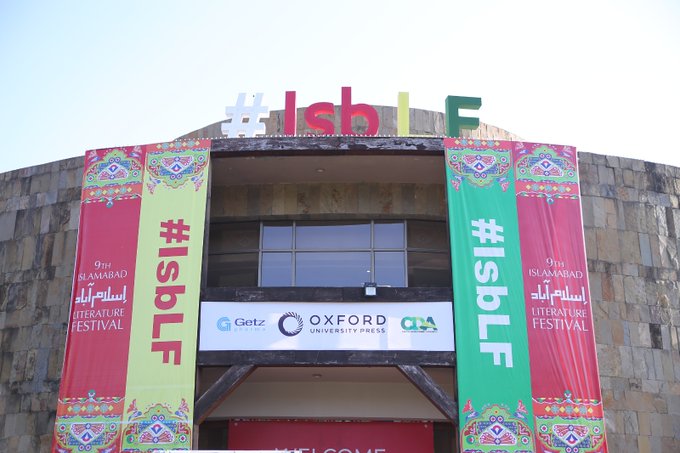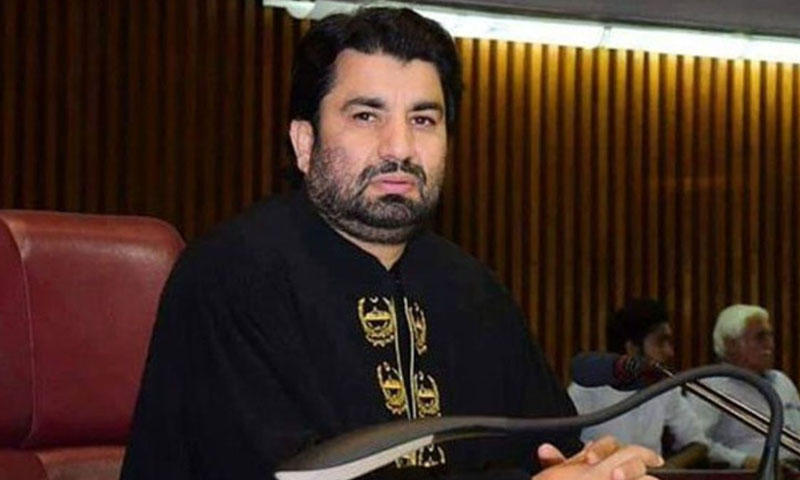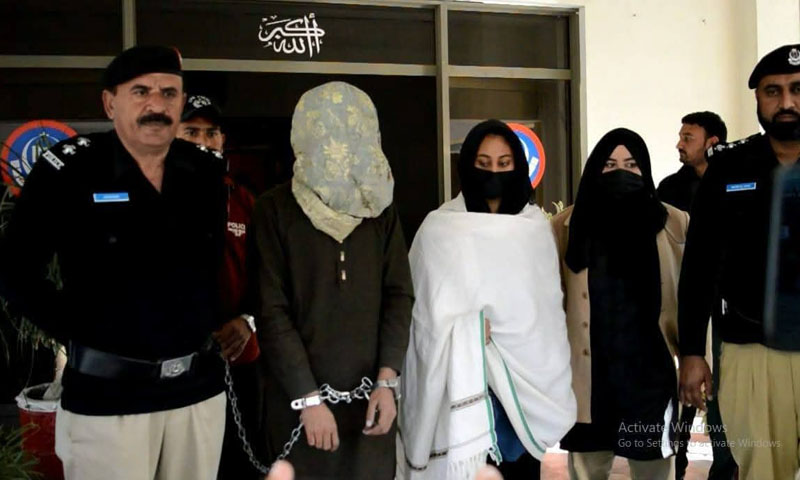- Web Desk
- Feb 09, 2026
Islamabad Literature Festival 2023: shines light on diversity and literary exploration
-

- Hum News
- Nov 04, 2023

ISLAMABAD: The 9th Islamabad Literature Festival (ILF), organized by Oxford University Press (OUP), focused on sustainability, diversity, and the potential of human imagination on its second day. The literary extravaganza continued to inspire and enlighten attendees who arrived from various places.
The day featured panel discussions, such as Verses in Play: Celebrating Tradition through Urdu Poetry; Pakistan’s Wars: An Alternative History; Destined to Fail Democracy and State Building Experiment in Post Taliban Afghanistan; and Other Days by Arshad Waheed.
Under the moderation of Yaqoob Bangash, the session witnessed Rahman presenting his main findings on the history of wars in Pakistan, followed by a discussion on the economic implications of such events. Moeed Yusuf highlighted, “The cost of war extends beyond the fiscal, impacting generations born after 1995, who have not experienced a peaceful day. They represent our future, burdened by this trauma.”
Engaging conversations revolved around diverse themes, including “The Dark Side of Journalism: Culture and Political Economy of Global Media in Pakistan and Afghanistan,” “Mahmil o Jaras: Collection of Unpublished Poems by Josh Malihabadi,” “Pakistani Prose and Verse Exploring Contemporary English Literature,” “Qaidi” by Omar Shahid Hamid translated from English by Inaam Nadeem, “Grieving for Pigeons: Twelve Stories of Lahore” by Zubair Ahmad, “Shaping the Future of Learning,” “Ink and Empowerment: Women in Publishing,” “Lahore’s Lost Legacy: Unveiling the Life and Contributions of Sir Ganga Ram,” “The Other In The Mirror: Stories from India and Pakistan” edited by Sehyr Mirza, “Hans Kar Jeeyo,” “The Lost Heritage,” and “Dandelion Blooms: The Evolution of Islamabad.”
The enlightening session, “The Dark Side of Journalism: Culture and Political Economy of Global Media in Pakistan and Afghanistan,” moderated by Fasi Zaka, highlighted the role of stringers and fixers in the KP region over the last few decades. Speakers discussed the challenges faced by Pashtun journalists and emphasized the significance of the KP region. Hamid Mir lamented the coverage of events post-9/11, where fixers risked their lives for foreign media outlets.
Moderated by Mina Malik, “Ink and Empowerment: Women in Publishing” addressed various issues concerning women publishers. Both Muneeza Shamsie and Mehvash Amin shared their experiences in getting published, distributing their work, and the role of libraries in promoting local writers.
Diverse panels discussed the power of literature in representing a range of voices and perspectives. Topics included “Democracy, Bureaucracy, and Judiciary: Going Beyond the Colonial Entanglement,” “AI in Education: Empowering Minds,” “Development Pathways: India, Pakistan, and Bangladesh at 75” by Ishrat Husain, “Fair Assessments: Ensuring Equity and Excellence in Education,” “Urdu Fiction ka Irtiqa,” and “Investing in Human Capital: Tackling Underdevelopment in Pakistan.”
Moderated by Khayyam Mushir, the “Democracy, Bureaucracy, and Judiciary” discussion explored facets of good governance absent in today’s bureaucracy. Speakers Hamid Khan, Fauzia M. Sana, and Zahid Hussain shared perspectives on addressing these issues within the country’s socio-political scenario.
Moderating the “AI in Education” session, Saquib Ahmad, Managing Director at SAP Pakistan, highlighted the shift from seeking right answers to asking the right questions for extracting accurate responses. Shahid Mahmud emphasized the long-standing presence of AI, now accelerated in pace.
In the “Fair Assessments: Ensuring Equity and Excellence in Education” session, Andrew Coombe, Managing Director of OxfordAQA, stressed the importance of fair assessments. The focus was on creating a high-quality syllabus that is valid, reliable, and comparable, ensuring assessments serve as steppingstones toward educational excellence, accommodating diverse student strengths and experiences.
The humorous session “Hans Kar Jiyo” with Khaled Anam and Beo Zafar delighted the audience with Anam’s wit and Zafar’s masterful mimicry.
The day concluded with the screening of the feature film “Kamli,” introduced by Sarmad Khoosat. Simultaneously, a captivating Mushaira took place, featuring renowned poets who mesmerized the audience with their verses. Iftikhar Arif presided over the Mushaira, with Mehboob Zafar hosting, encapsulating literary sophistication and cultural legacies, emphasizing the festival’s dedication to diverse storytelling forms.




